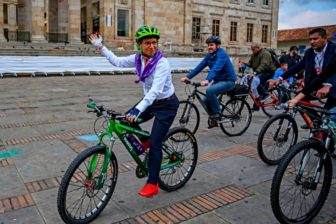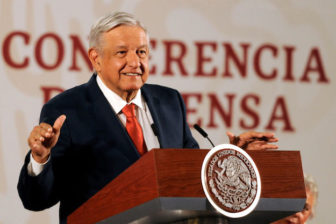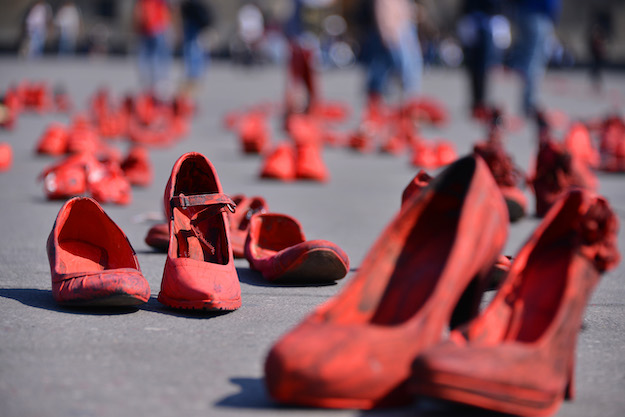This article has been updated
MEXICO CITY – April 3, 2019 seemed like a breakthrough day for Mexican baseball.
In a game against Arizona that afternoon, San Diego Padres superstar Manny Machado stepped to the plate and sent a two-strike fastball hurtling over the left-field fence.
Machado was born in the U.S. to Dominican parents – but his bat that day was Mexican, produced by a company founded only three years earlier in a Sinaloa garage. The home run signaled the arrival of Valma Bats in the notoriously hard-to-penetrate supply chain of U.S. professional sports.
“I almost couldn’t believe it,” Alejandro Villareal, a co-founder of the company, told AQ. “We were trying to break into Major League Baseball (MLB) without really knowing anybody. And here the first player to use one of our bats was Manny Machado.”
A year later, the COVID-19 pandemic has disrupted Villareal’s plans – and dampened expectations for a revival of Mexican baseball on par with the sport’s first “golden age,” when some of the best black ballplayers in the U.S. set off for Mexico in the 1940s in search of unsegregated leagues and better pay.
Despite support from President Andrés Manuel López Obrador, himself a baseball player and St. Louis Cardinals fan, teams, players and related industries have struggled amid the cancellation of games, deferral of paychecks and a recession expected to be one of Latin America’s deepest in 2020.
Villareal said production at his company, now Overfly Sports, has fallen around 75%, with a skeleton crew of just three people to fill occasional orders. The company is also sending fewer samples to professional ballplayers – cutting costs, but slowing a key means of entry to the U.S. market. (Miguel Valle, Villareal’s former partner and co-founder, disputes the claim that Overfly is affiliated with Valma Bats.)
“The first thing you do in a crisis is stop investing, but it’s a real dilemma because our growth depends on that,” Villareal said.
MLB looks likely to hold at least some version of its season this year, with tentative plans to start playing in July in front of empty stadiums. But that model may not be profitable in Mexico due to a lack of lucrative TV deals. Mexico’s biggest league, the LMB, takes around 70% of revenues from ticket sales compared to around 40% for MLB.
Damage to the sport has already been widespread. The U.S. makers of Louisville Slugger, the world’s largest bat brand, shut down their factory and furloughed 90% of workers in April, before resuming production this month. Other baseball companies, including Mexicali-based Victory Bats, temporarily stopped new production. In a recent survey, more than 75% of Mexican small business owners said their businesses wouldn’t last if the crisis continued another two months.
“If there’s no baseball this year, then we’d really be in a jam,” Villareal said. “We’re in survival mode as it is.”
A lost season would also be hard for LMB to absorb, even as López Obrador’s arrival has coincided with a string of good news for the league. To begin the 2019 season, a new stadium in Mexico City helped push league-wide attendance up 20% from the previous year. Around the same time, MLB agreed to again allow its teams to sign players directly from the Mexican league, after canceling a similar arrangement in 2018 over corruption concerns.
Now LMB is dealing with a postponed season, salary cuts and the loss of vital sponsorship dollars. While a few owners have offered financial support to players, most have deferred salaries until the season starts up again, whenever that may be. Teams that had been in financial trouble prior to the outbreak may now be stretched to stay in business.
“It’s hard to make money in baseball in Mexico,” Enrique Kerlegand, a commentator and inductee into Mexico’s Baseball Hall of Fame, told AQ. “The owners are mostly guys who have made their fortunes doing other things. Baseball itself isn’t really their business.”
López Obrador has tried to consolidate the sport. Shortly after becoming president in 2018, he set up PROBEIS, an agency tasked with promoting Mexican baseball and uncovering talented ballplayers across the country. He gave it a roughly $14 million annual budget and hired former Major Leaguer Edgar González to run the show.
But the outbreak has meant big changes to scouting and development programs that were just getting underway, and an education program, which González told AQ was “the most important work PROBEIS does,” has been delayed.
“In Mexico it used to be you either go to school, or you play baseball,” González told AQ. “We want the players that are good enough to get to the major leagues. But after they finish high school.”
PROBEIS’ first school, where students were to train alongside regular classes, had been set to open in Guanajuato about a week after the coronavirus lockdowns began. For now, both ball playing and education are on hold.
Until they return, players, coaches and fans are finding new ways to stay connected to the game. Daniel Jiménez, who plays for the LMB’s Diablos Rojos in Mexico City, told AQ that the team is following a virtual training regime – though swinging a bat in the house has been problematic. LMB President Horacio de la Vega said that the league is looking for new ways for teams to earn revenue, and may accelerate plans for a subscription-based content service.
“Despite everything, it’s still a good time for Mexican baseball,” De la Vega told AQ.
This article was updated after an interview with Miguel Valle, a co-founder of Valma Bats.









